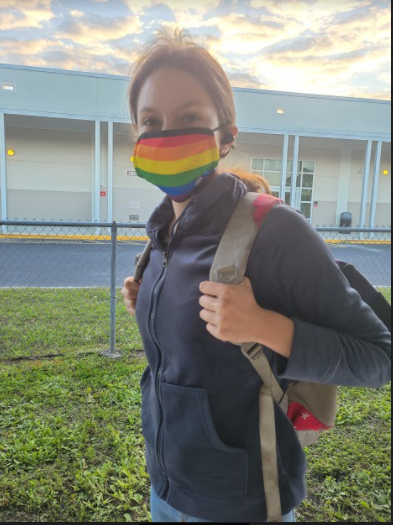Why I Believe Harvey Milk and the LGBT Community Deserve More Recognition
By Lilianna Medina
Now many of you might be thinking, “Who is Harvey Milk and what does he have to do with the LGBT community?” I’m so glad you asked! Harvey Milk was an American politician of San Francisco, California as well as an activist for the LGBT community. He was one of the first openly gay politicans to be elected to the city’s Board of Supervisors. Because of his gay-rights efforts, his birthday (May 22) is now celebrated as a holiday known as Harvey Milk Day. On that day, schools across California teach students about the importance of LGBT equality as well as ways to combat homophobia.
But here is where the question really begins. Throughout my childhood, I had to move a lot because my father worked for the military. I moved to states like Maryland, Kansas, and even California. For as long as I can remember, I don’t remember any of my elementary schools teaching or even talking about LGBT awareness. Even in California, I wasn’t taught LGBT, even though that’s the state where Harvey Milk Day is celebrated. I also noticed that the schools I attended taught me about racial segregation and Martin Luther King Jr. And the thing is, while the states I moved to celebrate Martin Luther King Jr Day, they never celebrated Harvey Milk Day. “I wasn’t taught LGBT in elementary school, either,” says Senior Joyce Rodriguez. “I think we aren’t taught LGBT because it might go against families’ morals.”
Many of you might be wondering why you weren’t taught LGBT and Harvey Milk in elementary or middle school as well. So why is Harvey Milk Day not a popular holiday? The answer might be due to the fact that it is known as a state holiday, not a federal one. “I think Harvey Milk Day is celebrated in California mainly because people in other parts of the country have yet to realize how significant he is,” says Timber Creek Gay Straight Alliance sponsor, Ariana Medina. “I think all states probably have large populations of LGBTQ+ members, but it is possible that in more conservative states, LGBTQ+ people may have mixed feelings about publicly identifying because of the possibility of discrimination.”
Although same-sex marriage is legal in all states of the US, the topic of LGBT still remains untouched in most schools. I think one of the reasons why LGBT history and awareness isn’t taught much in public schools is because it’s still a debatable topic. Throughout history, LGBT people were viewed as immoral, or even undesirable. In fact, certain religions prohibited any acts or behaviors of homosexuality. Coming out usually meant risking rejection from friends and families, loss of job and housing, or in other cases, imprisonment. It’s still debated among counties as some states still have mixed emotions about LGBT members. So, it’s likely that Harvey Milk Day is mainly popular in the state of California because it has a huge tolerance of LGBTQ+ members.
To be honest, I firmly believe Harvey Milk deserves more recognition throughout the whole United States, not just California. In fact, I view his acts of protest to end homophobic discrimination against LGBTs exactly like Martin Luther King’s acts of protest to end racial discrimination against African Americans. “I think that Harvey Milk is an important part of history,” Medina says. “I definitely think that education should be more inclusive and highlight individuals of different sexual orientations and gender identities.”
I firmly believe that being homophobic is not acceptable. For one thing, it’s considered bullying, which our school has zero tolerance for. For another, it’s forcing LGBT people to hide their true selves in order to avoid possible hatred, making them feel very insecure. As an ally to the LGBT community, I believe coming out is the best thing a person can do. After all, they’re allowed to be themselves, just like everyone else. “Don’t assume that you know everything about someone just by looking at them,” Medina states. “Have nonjudgmental conversations with people maintaining an open mind and showing appreciation for differences even if you do not understand them. Awareness starts with you.”
